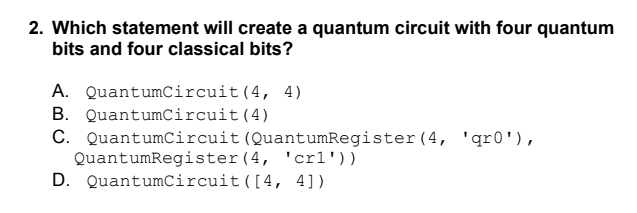IBM today announced the launch of its first developer certification for programming quantum computers.
While quantum computing may still be in its infancy, most pundits in the industry will tell you that now is the time to learn the basic concepts. And while there is little that’s immediately intuitive on the hardware side of quantum computing, the actual software tools that most players in the industry are developing today should feel somewhat familiar to virtually any developer.
Unsurprisingly, the ‘IBM Quantum Developer Certification,’ as it’s officially called, focuses on IBM’s own software tools and especially Qiskit, its SDK for working with quantum computers. Qiskit has already proven quite popular, with more than 600,000 installs and when IBM Quantum and the Qiskit team hosted a quantum summer school last year, almost 5,000 developers participated.
But on top of knowing their way around the basics of Qiskit (think defining and executing quantum circuits) developers also need to learn some of the basics of quantum computing itself. Once you know your way around Bloch spheres, Pauli matrices and Bell states, you’ll probably be in good shape for taking the certification exam, which will be administered on the Pearson VUE platform.
Abe Asfaw, the global lead for Quantum Education and Open Science at IBM, told me that this is just the first of a series of planned quantum certifications.
“What we’ve built is a multi-tiered developer certification,” he told me. “The first tier is what we’re releasing in this announcement and that tier gets developers introduced to how to work with quantum circuits. How do you use Qiskit […] and how do you run it on a quantum computer? And once you run it on a quantum computer, how do you look at the results and how do you interpret the results? This sets the stage for the next series of certifications that we’re developing, which are then going to be attached to use cases that are being explored in optimization, chemistry and finance. All of these can now be sort of integrated into the developer workflow once we have enabled someone to show that they can work with quantum circuits.”
Asfaw stressed that IBM has focused on education developers about quantum computing for quite a while now, in part because it takes some time to develop the skills and intuition to build quantum circuits. He also noted that the open-source Qiskit project has integrated a lot of the tools that developers need to work at both the circuit level — which is a bit closer to writing in C or maybe even assembly in the classical computing world — and at the application level, where a lot of that is abstracted away.
“The idea is to make it easy for someone who is currently developing, whether it’s in the cloud, whether it’s using Python, to be able to run these tools and integrate quantum computing into their workflow,” Asfaw said. “I think the hardest part, to be very honest, is just giving someone the comfort to know that quantum computing is real today and that you can work with quantum computers. It’s as easy as opening up a Jupyter notebook and writing some code in Python.”

Comments
Post a Comment